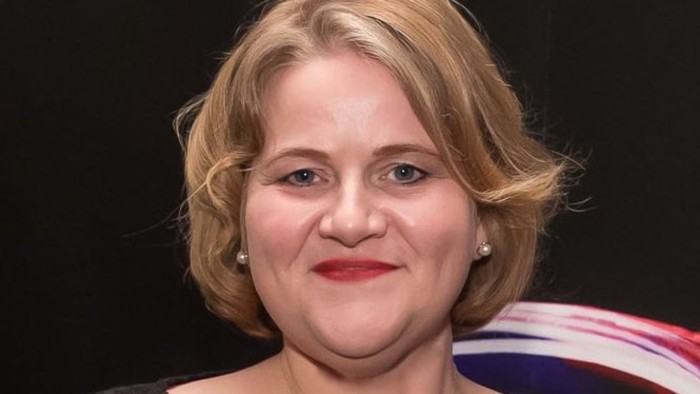Women in Business — Ruthe Farmer

Simply sign up to the Business education myFT Digest -- delivered directly to your inbox.
Ruthe Farmer is an MBA graduate of the University of Oxford Saïd Business School, in the UK. For almost 15 years, she has focused on increasing women’s participation in technology and engineering through her role as chief strategy and growth officer for the National Center for Women & Information Technology in the US. This is a not-for-profit community of more than 600 organisations dedicated to growing the pipeline of women in tech.
Ms Farmer grew up on the West Coast of the US and started her career in corporate marketing and advertising, but really found her niche when she joined the local Girl Scout Council in 2001. From then on, her focus was on gender equity in tech and engineering. In 2008 she joined Saïd Business School.
1. Why did you choose to study for an MBA?
I wanted to understand how best to leverage big established education networks to bring girls into technology and engineering pathways. Working at Girl Scouts — the largest women’s organisation in the world – it was frustrating to see the potential of that network unrealised or at least not fully leveraged. I wanted to figure out how to apply business principles to the vexing problem of women and girls’ participation in Stem fields (science, technology, engineering and mathematics).
2. Why did you choose Saïd?
I hadn’t intended to go to business school at all [but after] I attended the Skoll World Forum on Social Entrepreneurship at Saïd in 2006 and learnt of the programme, [its focus on] social entrepreneurship interested me.
3. What is your favourite memory of business school?
We had a wonderful weekend trip to France for the MBAT, an athletic competition for all the MBA programmes in Europe. It was fun and not at all serious. I competed in women’s rugby, foosball (table soccer) and tug-o-war. I think Saïd came in fourth overall, but our men’s rugby dominated.
4. What did you find the most difficult?
I went to business school later in life than most, so I’d been out of school for quite some time. The most challenging thing was to get back into the swing of an academic schedule and environment. Also, I had been in non-profits for decades, so it was a bit jarring to be dropped into a group of people focused on profit and money. The whole first term was finance recruiting season and the whole vibe was finance, finance, finance – which is decidedly not my area of focus.
5. What were the gender dynamics like?
My year was about 20 per cent women and the gender dynamics were as expected. However, I would wager that Oxford may be one of the most historically male-oriented organisations in the world. Being a woman there feels like an afterthought – not integrated, but rather shoehorned in. It needs some reworking in my opinion.
6. What would you do if you were dean of a business school for the day?
Make business school free or deeply discounted for people from the social sector. The social sector needs more talent with business acumen, but does not offer the salaries that make it possible to afford easily the top business programmes.
7. What advice would you give to women graduating this year from business school?
Negotiate your salary. The first job you take out of school will set the bar for your salary for the rest of your career. Do your research and know your worth. I recommend GetRaised.com as a resource.
8. What are your top tips for networking?
Networking is everything. Top tips:
1) Don’t be shy about leveraging your networks (all of them). This is why you have them.
2) Networking is a two-way street. Make sure you are bringing value to the other person – otherwise you are just one of many voices asking but not offering.
3) Make it easy for someone to help you. If someone sends me a request I can easily forward without explanation or work on my part, I will do it. If it adds to my workload, chances are it will end up on the bottom of my priority list.
4) Never ask more than two questions in an email. Keep it short, concise and articulate clearly what you are asking for
5) Be a resource. If an opportunity is presented, either step up, offer to learn whatever skill is needed, or recommend someone you know. Even if you aren’t the person chosen this time, you’ll be remembered as someone who steps up and has resources to offer.
9. What has been your best business trip?
Hard to say. There are so many they run together after a while. I recently had a trip to Washington DC for a White House event – the first ever tech meetup there – that was great. But the icing on the cake was a surprise invite to an event celebrating Sandra Day O’Connor. All the women on the US Supreme Court were there. It was an amazing brush with greatness.
10. What are your future plans?
I can’t say I have any specific plans. My organisation is on a mission to double the number of female degree recipients in computer science and information technology in the US. That is an audacious goal and keeps me pretty busy. In my next act, I plan to take on the issue of safety of women and girls. The fact that this issue is pervasive yet largely unaddressed in a place like the US is atrocious at this stage in history.
Comments